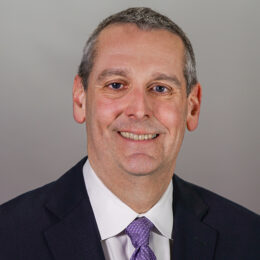Welcome to the New Old

This week marks the end of the first week of 2022. Everyone is making their New Year’s resolutions for health, wealth and changing bad habits. Unfortunately, most resolutions will go in the dumpster by the second Friday of January. It’s simply human nature. Regardless, the new year brings everyone hope for a fresh start.
2020 and 2021 have been held hostage by an illness that continues to develop, but we continue to be hopeful that things will get better. In fact, many believe that the changing of the calendar will improve the likelihood that the pandemic will improve. Others believe that our economy, and also interest rates, will improve.
And there are others who want to feel secure about where they are getting advice about their financial future and health decisions. I sense a growing number of Americans simply feel a high level of frustration with the current state of the health, wealth and the habits of our leadership and country in general.
Change leads to opportunity
So, it’s a perfect time to talk about change, renewal and hope for 2022. But talking about it does nothing to improve our situation. In fact, it does the opposite. Instead of looking at facts, we want to look through a lens of hope, renewal and desire to change.
The pandemic is turning into – or will become – endemic.(1) It will be something we have to live with, something unavoidable through mandates, fear and manipulation. Interest rates are likely to remain low for several years.(2) Inflation has become more than a short-term issue.
While policymakers have indicated multiple interest-rate increases, the reality is that the large national debt will create more hazards for rising interest rates than just inflation. Any “blip” in the stock market will cause leadership to bow to industry giants and create false support for continued valuation growth. It is fundamentally unsound to drive prices higher with no increases in profits over long periods of time.
We have manipulated growth through historically low interest rates since the financial crisis and provided crutches for those CEOs that have failed to provide long-term value.
In addition, advisor and consumer behaviors have not changed over the past several years. Why should they? With every statement, there is an increase of double-digit annualized returns – even in a year where the economy came to a screeching halt.
Finally, the same people making the decisions to keep interest rates low — to suppress hope through fear – and failing to educate clients on the long-term risks of retirement are the same people that have been in place for the last several years.
We have the same people, the same problems, and the same responses. Why should we expect any other outcome than what we have been experiencing?
Changing Outcomes by Changing Behaviors
Without behavioral change, there is no hope or renewal for a better 2022. What can we do as an industry to change our behavior? We must focus on several key factors:
Drive value through your organization
If our value is based on last quarter’s return, at some point, we will lose the game. We must establish a better reason and more value to do business with us in 2022.
Create a better client experience for all clients. It might be offering more services that represent the new challenges that clients have. Whatever it means to your business, it means that we need to get better. Period.
Protect established wealth
Do your clients feel apprehension around the potential for loss? If so, address it. We can’t continue to sit on the sidelines and wait for something to happen. I wrote several years ago about the speed of transactions. Reactivity breeds losses – in the market and with your clients.
We need to have conversations about how to get into position for the next 30 years as opposed to the next 90 days.
Run through the end zone
I’ve heard several executives tell me that their advisors had such a great year and met their goals, that they took 60-90 days off at year-end.
Do clients not need financial advice after our goals are met?
Do they feel out of touch with you because of your business model?
Look to the future
Our clients will transition to retirement over the next decade.
3,650,000 Americans are scheduled to reach retirement in 2022. That doesn’t include those workers that might lose their jobs this year and elect to not return to the workforce.
Many clients are leaving corporate America to set up their dream careers. How are we assisting in that transition and how can we prepare them for the benefits their families need when they leave their corporate positions?
Deliver education
Over 84% of Americans will look at other financial professionals if they don’t receive education on Social Security.(3) Add value through education in new mediums, not just traditional seminars, Zoom calls and newsletters.
Can you turn these resources into lead generation for your firm?
Respond to Facts, Not Fiction
You may feel that I am bullish about 2022. Not true. I’m extremely optimistic but also realistic. I’m preparing to make choices that might not be in favor today but will be highly valued by my best clients (not customers). Our clients will drive our business forward – not the media, not the few CEOs benefiting from their restricted stock options, not policy makers using antiquated methods to address future issues. I choose not to allow others to define my success or failure with my clients.
Transformational Tactic
To change your outcomes in 2022 you must first change your behavior. Follow these five steps to start on the path to a better future:
- Drive value for your clients, reiterating why they do business with you
- Protect established wealth by planning far in the future, not just into next month
- Make yourself available to your clients by running through the endzone, not by taking off after you’ve hit a particular goal
- Look to the future — both yours and your clients — with tactics that change with their goals
- Deliver education your clients are seeking
It’s up to you to help your clients understand what’s really happening in the industry, not just what they wish would.
- https://www.hsph.harvard.edu/news/features/what-will-it-be-like-when-covid-19-becomes-endemic/
- https://www.kiplinger.com/economic-forecasts/interest-rates
- https://www.nationwide.com/lc/resources/investing-and-retirement/articles/social-security-survey-results


















